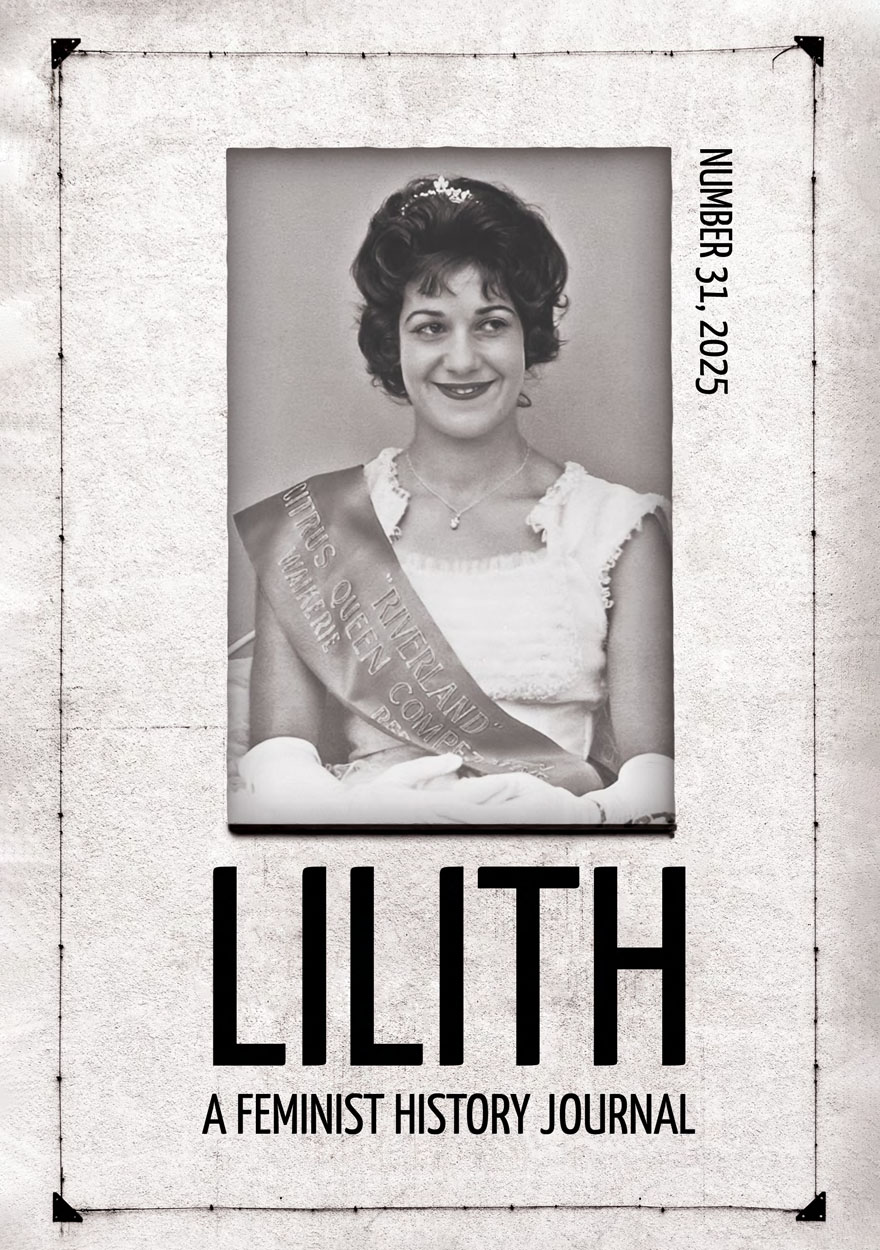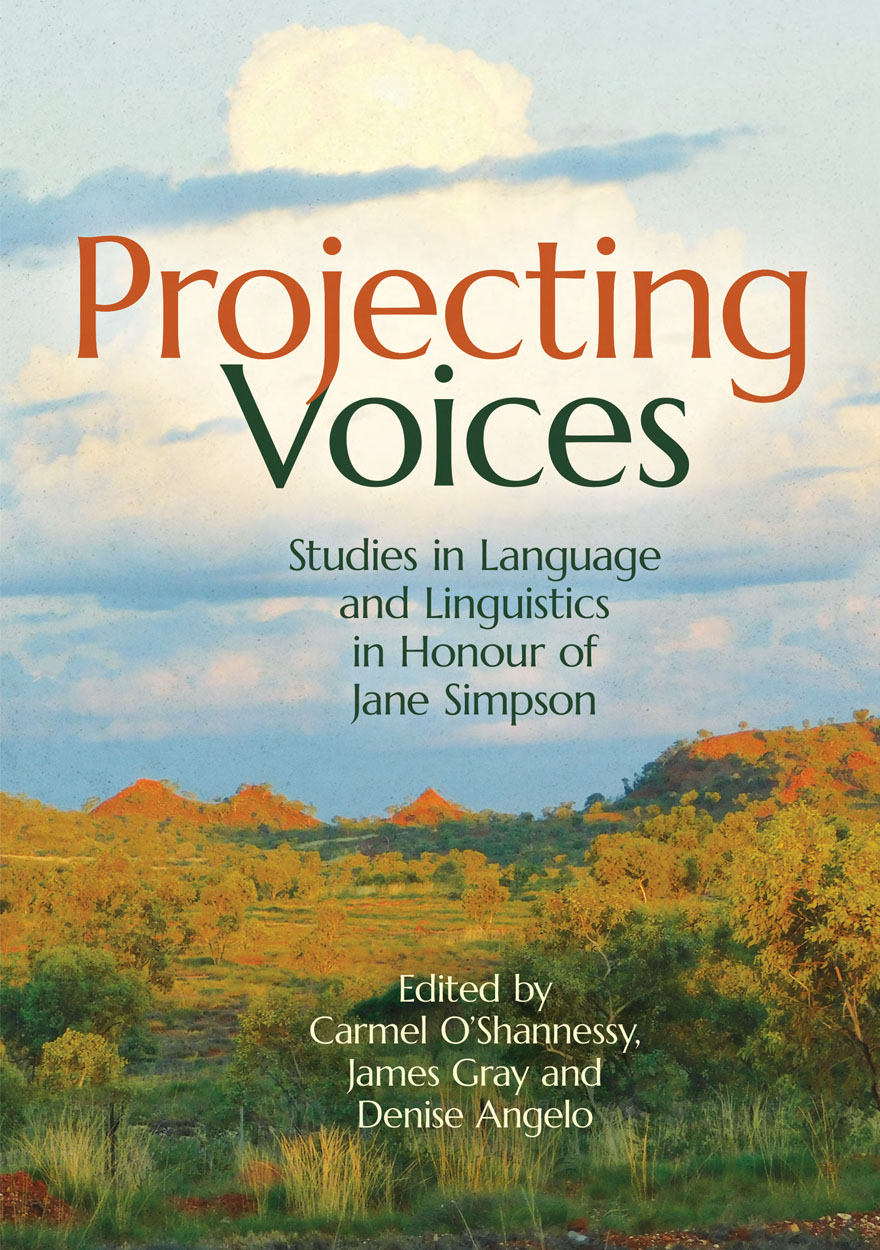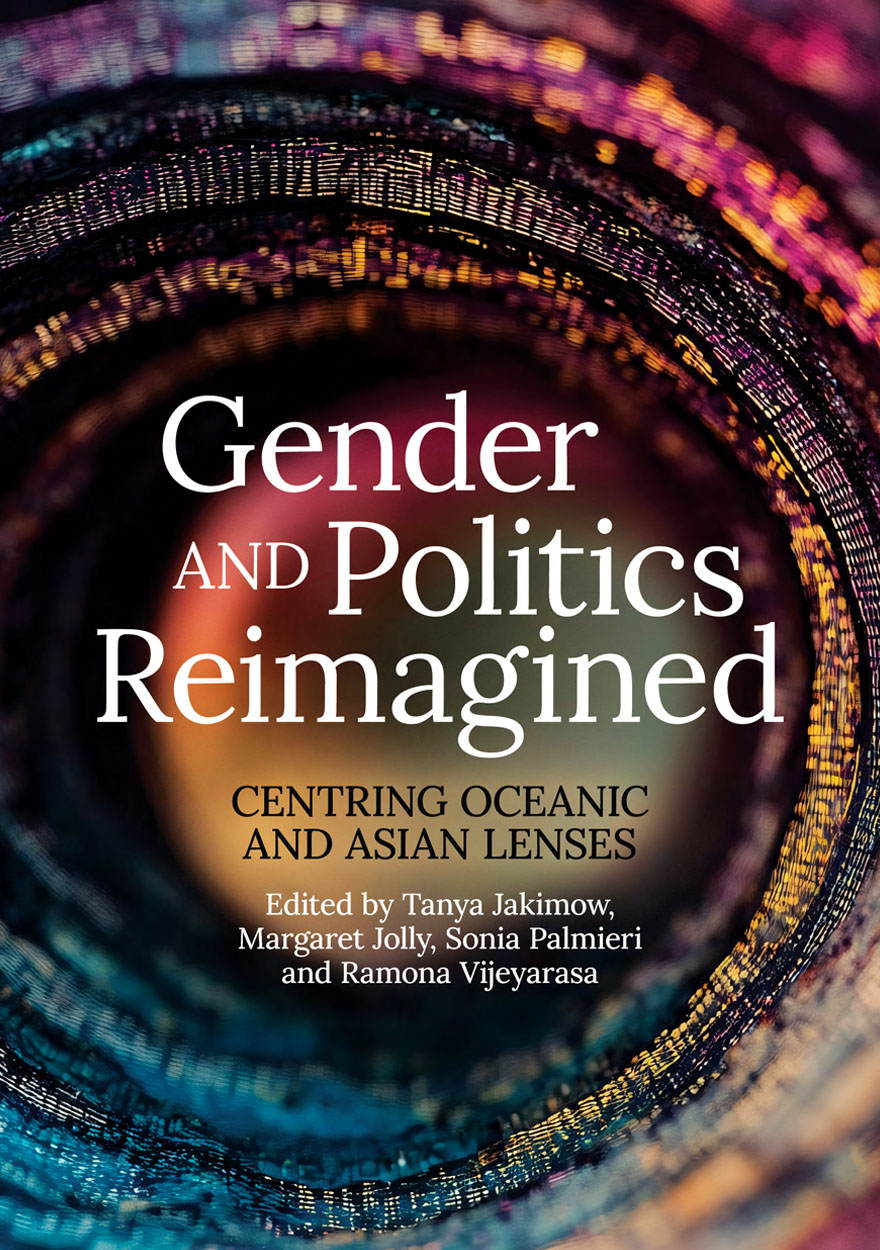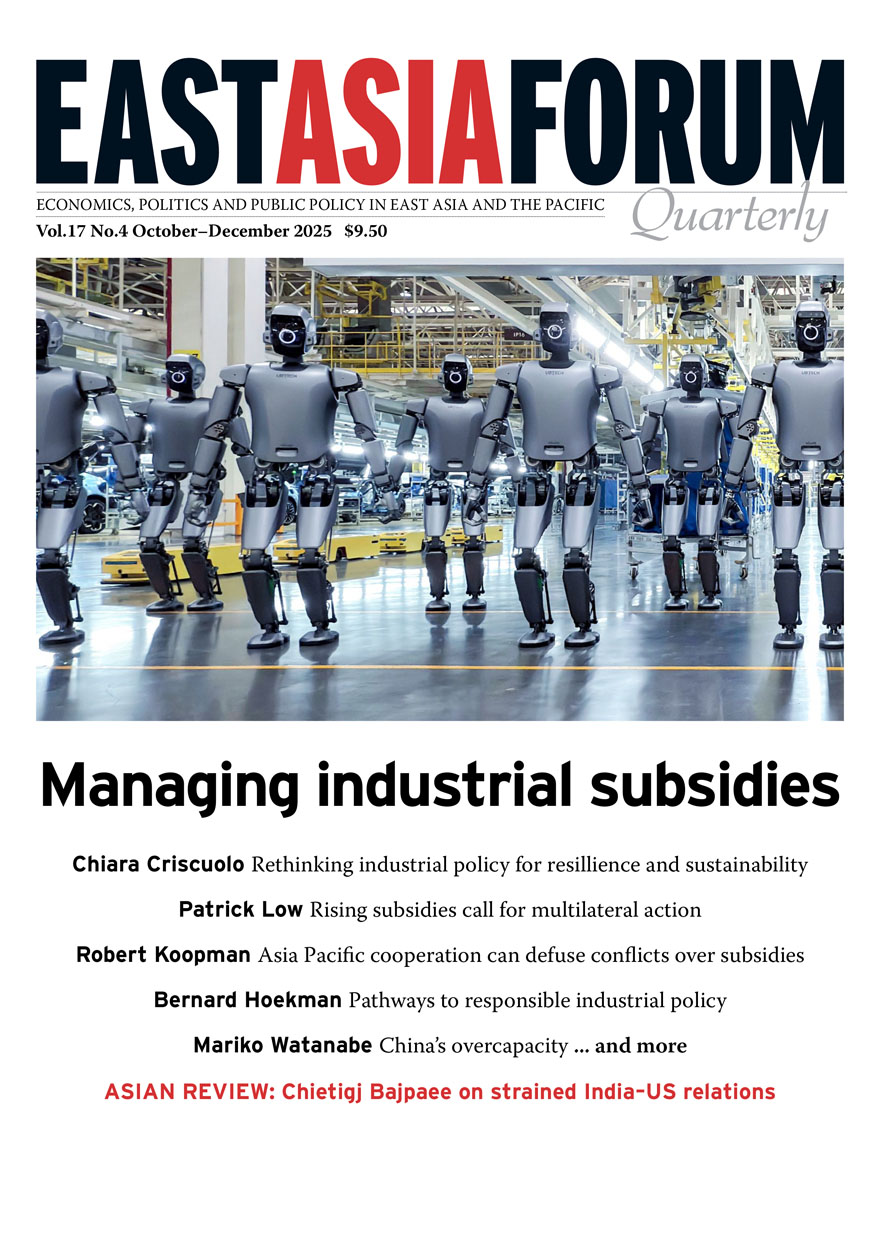Search titles
Displaying results 1 to 10 of 869.

Peter Marralwanga »
Painter of the Djang of western Arnhem Land
Authored by: Luke Taylor, Ivan Namirrkki
Publication date: 2026
Peter Marralwanga (1916–1987) was a leading figure in one of the great art practices of the world. He grew up in western Arnhem Land surrounded by artists painting in rock shelters and he learned to paint this way himself. The subjects of his paintings were the Djang who made his country and placed the spirits of people within it. Marralwanga’s story highlights the way bark painting became important as a way of evading assimilation policies rife within Northern Territory towns. Marralwanga established an outstation at Marrkolidjban where he could teach his children how to properly care for Ancestral lands, with part of this care involving a knowledge of how to paint. As a senior person who had travelled widely in his youth, and gained extensive ceremonial knowledge, Marralwanga was highly influential among a broad group of painters. Ivan Namirrkki, a painter of note and Peter Marralwanga’s son, has provided here his own account of his father’s life.
This book tracks Marralwanga’s life of learning about country and conveys the religious meaning of numerous major works, offering outsiders a richer understanding and appreciation of Arnhem Land art. It also shows the crucial role of individuals working for the community arts cooperative Maningrida Arts and Culture in facilitating Maralwanga’s rise to recognition as a major Australian and world artist.
Extensively illustrated, Peter Marralwanga: Painter of the Djang of western Arnhem Land, is a study of unique knowledge and beauty.
Coming soon
Notify me
Terra in Our Mist »
A Tūhoe Narrative of Indigenous Sovereignty and Settler-State Violence
Authored by: Pounamu Jade William Emery Aikman
Publication date: 2026
Terra in Our Mist examines the persistence of state violence against Ngāi Tūhoe – the illustrious People of the Mist – whose ancestral homeland of Te Urewera stands as one of Aotearoa New Zealand’s most storied and contested landscapes. It focuses on a pattern of police violence: the 2007 anti-terror raids, codenamed Operation Eight, which centred on Ruatoki – one of the principal valleys of Te Urewera – and subsequent operations in 2012, 2014 and 2016. The book asks why such actions continue, and what they reveal about the unfinished nature of colonisation today.
These events are situated within a longer whakapapa (genealogy) of colonial engagement: a history of invasion, confiscation and control stretching back to the nineteenth century. Putting Indigenous scholarship in conversation with Michel Foucault’s ideas on power and the state, the book explores how differing understandings of land – terra, a space claimed through violence, and whenua, a living ground of ancestral belonging – continue to shape the relationship between Tūhoe and the state.
The police raids are shown not as isolated excesses, but as contemporary expressions of a colonial logic that has long sought to discipline Indigenous peoples and their sovereignties. By drawing these connections, Terra in Our Mist argues that the state’s claim to sovereignty depends on periodic re-enactments of force upon Indigenous communities. Blending ethnography, visual narrative and political critique, this book traces how the ground itself becomes a site of contest: over history, authority and the meaning of place in an unsettled world.
Coming soon
Notify me
Lilith: A Feminist History Journal: Number 31 »
Publication date: 2026
The 2025 Lilith presents four research articles focused on gender-based issues and experiences in twentieth-century Australia and Britain. The Australian-focused articles examine Lillie Beirne’s maternal feminism and related campaigns for social credit in the 1930s and 1940s, and how the ‘Citrus Queen’ beauty pageants of South Australia’s Riverina region articulated ideals of Anglo-Australian womanhood while also creating space for migrant women to participate in civic life and assert regional belonging. The third of these articles offers a mother’s intimate oral history of the tensions between the expectations and realities of motherhood when her child struggles with mental health. Turning to 1960s Britain, one article examines arguments for legalising abortion and identifies that while women’s rights and circumstances were important considerations, arguments for maternal health were most successful in achieving abortion rights.
The issue also features ten book reviews spanning diverse thematic terrain. These include a memoir of the Australian Women's Liberation movement, Shauna Bostock's white and Aboriginal family history, and biographies of the nineteenth-century novelist Madame Dudevant (George Sand) and of Doris Punshon's life as a queer woman. Reviewed books also cover the role of women in the intellectual history of international relations, the Women's Weekly's influence on Australian food culture, sexism and harassment in the Westminster parliamentary system, Geraldine Fela's oral histories of HIV and AIDS nurses, the roles of sexuality and gender in remaking Australian citizenship, and trans-misogyny as a project of colonial violence. At a time when studies of gender and feminism are under siege, this issue testifies to the continuing vitality of feminist historical scholarship.
Coming soon
Notify me
Landslide »
The 2025 Australian Federal Election
Publication date: 2026
The 2025 Australian federal election saw an unexpected landslide victory for the Labor Party, the Liberal Party’s worst ever result and the continued rise of the non-major-party vote. In this book, Australia’s leading election analysts explore what contributed to this outcome, including the effectiveness of party and third-party campaigns, the changing demography of the electorate and external factors such as the ‘Trump effect’.
Baby boomers were outnumbered in 2025 by Gen Z and Millennials, who related to politics in a different way. Those pursuing their votes needed to do so through social media; influencers and podcasts became central to campaigning, as did humour appropriating popular culture with the help of AI. Increased cultural and linguistic diversity was also important, and there were new efforts to mobilise Muslim voters over the war in Gaza. Overshadowing it all was Trump. While populist themes seemed attractive at first, association with Trump quickly became a liability, and contributors here examine the difficulty of changing discourses mid-campaign.
This authoritative study is indispensable in understanding the new political landscape: polls and voting behaviour, misinformation, gender issues and competing leadership styles. Richly illustrated, the role of visual politics also receives close scrutiny.
Landslide is the nineteenth book in the ANU Press Australian Federal Election series. The series is sponsored by the Academy of the Social Sciences in Australia.
Coming soon
Notify me
Uneven Rewards »
Milestones in Labour Economics
Authored by: Alison L Booth
Publication date: 2026
Uneven Rewards brings together major studies of workplace relations and behaviour from the distinguished labour economist Alison L Booth. Over more than three decades, Booth has forged a distinctive intellectual path combining a strong interest in the role of gender and culture on labour markets with acute expertise in data collection, and cognate social science fields and methods.
With her co-authors, Booth examines the effects on men and women of evolving industrial relations’ rules and contexts. She studies the changing gendered and culturally-specific nature of labour markets, and analyses the findings of a set of data-rich social experiments to reveal insights about women’s and men’s behaviour in labour, educational and wider social settings.
Finally, Booth shares new conclusions arising from this extensive body of research. She shows how culture and nurture associated with the upbringing of boys and girls can have profound implications for educational and labour market performance and relative outcomes by gender:
There is no right or wrong place for young women and men to be. What matters is that they are given the opportunity to go where their talents lead them without being thwarted by cultural pressures.
Coming soon
Notify me
Law in the New Democracy »
Authored by: Paula Jane Byrne
Publication date: January 2026
In the 1850s, opposition to the Crown in New South Wales made for unsteady ground for the administration of criminal law. This study of skirmishes between magistrates, constables and the metropolis reveals just how far understandings of law could be stretched and warped by recalcitrant local populations. At Carcoar, the local population entirely controlled how law worked; on the South Coast, ‘the people’ influenced how law intervened in their lives; in the north west of the colony, publicans dominated; on the north coast, violence against First Nations/Aboriginal people was forcibly meshed into the day to day working of the courts. This study shows a ‘frontier’ centred on the coasts and in the minds of legal officials of the metropolis, but elsewhere, some recognition of the Aboriginal polity and an early understanding of Aboriginal rights.
With right of reply by First Nations/Aboriginal people

Vā Moana »
Space and Relationality in Pacific Thought and Identity
Edited by: Albert L. Refiti, A.-Chr. Engels-Schwarzpaul, Lana Lopesi, Billie Lythberg, Arielle Walker, Emily Parr
Publication date: 2026
Vā may be a small word, but it carries expansive meaning. Rooted in Indigenous Pacific knowledges—Samoan vā, Tongan tā vā, Māori and Hawaiian wā—this concept of relational space binds people, ancestors and cosmologies across time and place. Since the late 1990s, vā has become a powerful framework in academic and cultural contexts, energising conversations across Oceania and beyond.
As the world grapples with the rise of hyper-individualism, vā offers an urgent and restorative alternative: one that centres connection, responsibility and collective belonging. This rich collection of individually and collaboratively authored chapters explores how vā, wā, and related Indigenous concepts are lived, theorised and practised today. Drawing from diverse disciplines and grounded in specific cultural contexts, these contributions deepen our understanding of relationality, space and place across the Moana.
The AUT Vā Moana Research Centre is dedicated to exploring spatial concepts through Moananui (Pacific) thought. Established in 2012 by Albert L. Refiti and A.-Chr. Engels-Schwarzpaul at Auckland University of Technology’s School of Art and Design, Vā Moana brings together a vibrant international network of scholars. Their work reimagines how space is understood and experienced, both in contemporary and customary Pacific contexts. By engaging Indigenous ways of knowing—through the making of space, objects, rituals and performance—Vā Moana contributes to transforming global conversations around relationality, place and being in the world.
Coming soon
Notify me
Projecting Voices »
Studies in Language and Linguistics in Honour of Jane Simpson
Publication date: December 2025
This volume provides cutting-edge research on a wide range of questions in linguistics research, mostly centred on Australian Indigenous languages. Written by world-leading experts, the chapters take a fresh look at current questions in each topic, inspired by the work of Australian linguist Jane Simpson.
The chapters have implications for linguistic theory in the areas of historical linguistics, morphosyntax, semantics, the lexicon, language acquisition and issues in languages in education, and renewal of endangered languages.
This volume is essential reading for students and experienced researchers alike, with interests in theoretical and applied linguistics, especially in topics and issues related to Australian Indigenous languages.

Gender and Politics Reimagined »
Centring Oceanic and Asian Lenses
Publication date: December 2025
This timely collection reflects a coming together of academics, gender and development practitioners and activists to reflect on the gendering of politics. By centring Asia and Oceania and traversing numerous disciplines, the volume disrupts the illusion of certainty and clarity as to what is known about gender and politics. Individual chapters present specific research projects, while providing epistemological, theoretical and methodological reflections on how knowledge is produced and by whom, challenging the existing canon. The contributions collectively demonstrate the possibilities for theorising from Asia and Oceania to address the lack of diversity in political representation and leadership on a global scale, in which gender, race, class, caste, (dis)ability and sexual identity are powerfully interconnected.
Arising out of the Gender and Cultural Diversity in Politics: Australia, Asia and the Pacific workshop held at The Australian National University in 2022, this collection underscores the importance of fostering scholarship and mentorship in the academy. The diversity of authorship encompasses differences in ethnicity, nationality, sexuality and career stage, with an emphasis on the inclusion of authors from various Oceanic and Asian countries. The volume promotes academic practice as integral to social change, and social action as a form of knowledge production. As such, Gender and Politics Reimagined is sure to be a cornerstone in future scholarly and activist discussions.
Format: Hardback

East Asia Forum Quarterly: Volume 17, Number 4, 2025 »
Publication date: December 2025
Industrial policy has returned to the mainstream, with subsidies as an increasingly popular policy instrument of choice. While East Asia is deeply invested in the open global trade regime, multilateral rules are outdated, weakly enforced and ill-equipped to manage the widening gap among countries with unequal fiscal capacity. This issue of the East Asia Forum Quarterly examines the rationale, forms and effects of industrial policy resurgence, identifying both its risks and the conditions for its success. It argues that regional coordination of industrial policy would require greater transparency and peer review, using existing frameworks as well as new plurilateral agreements for that purpose. The region has the platforms and leverage to lead collective efforts to manage industrial policies without undermining the rules-based multilateral order, but whether it can will depend on mobilising the political will.
Download for free
Not available for purchase



